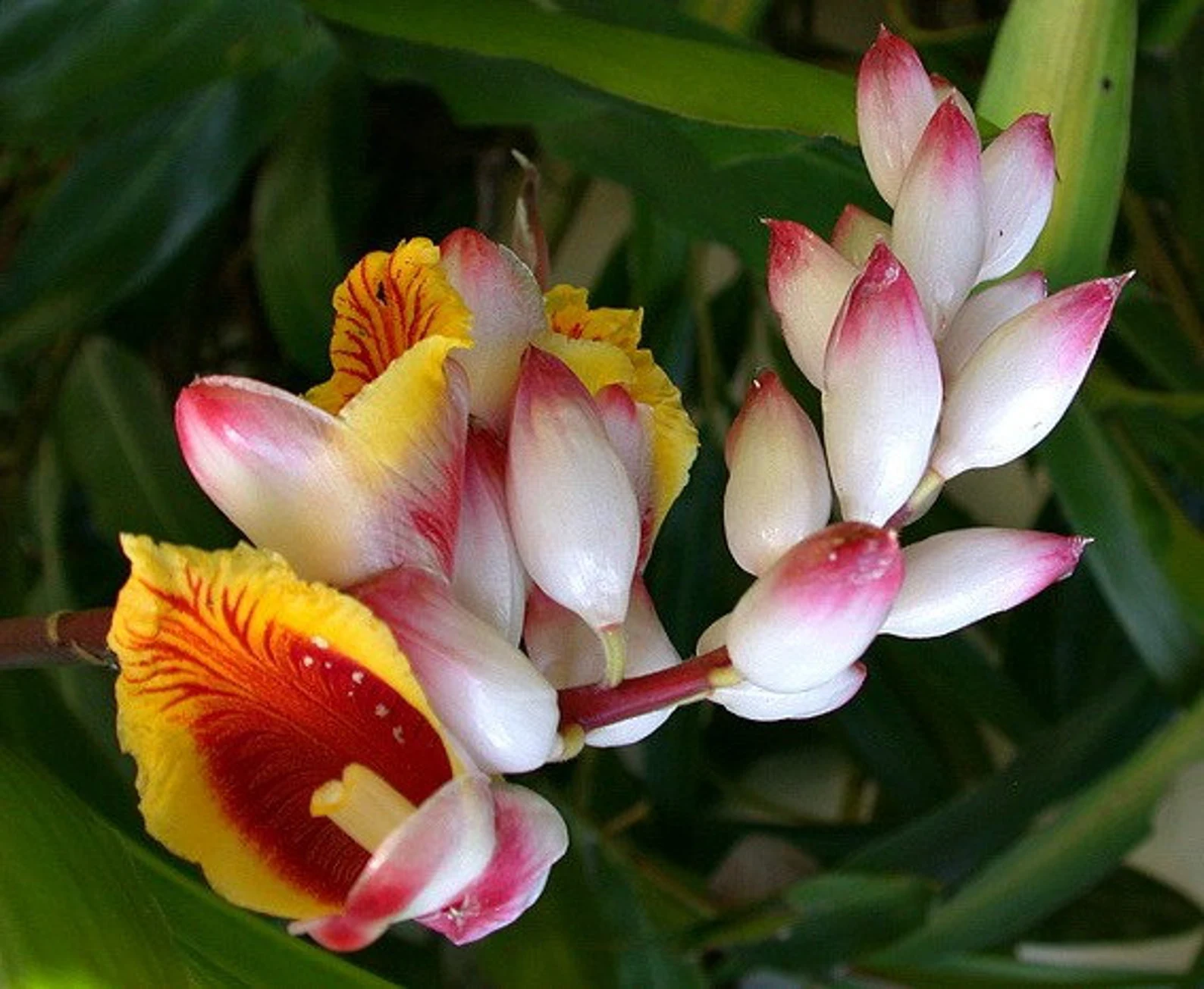
Studies Show Alpinia Katsumadai Has Significant Anti-aging Potential, Including Ability to Target Same Pathways as Rapamycin
Categories: Gallery, Uncategorized 0 CommentsAlpinia katsumadai has been used for thousands of years in traditional Chinese medicine, known as Cao Cou Kou. Several compounds found in Alpinia katsumadai, specifically Alpinetin and EMC, are thought to have significant anti-aging benefits. It has been recently referred to as Nature’s Rapamycin. Rapamycin is the only compound known to extend lifespan in mammals. Alpinetin, has shown potential against cancers, inflammation, liver disorders, cardiovascular diseases, bacterial and viral infections, lung injuries, brain diseases, and oxidative stress, largely through its ability to inhibit specific signaling pathways.EMC is thought to increase cell aptosis through regulation of apoptic signaling, and MAPK / ALP pathways.
Alpinetin’s anticancer activities are noteworthy, influencing apoptosis, cell cycle arrest, and metastasis across various cancer cell lines via pathways such as ROS/NF-κB/HIF-1α, PI3K/Akt/mTOR (Rapamycin target), and STAT3/c-Myc/survivin. Its anti-inflammatory effects are mediated through mechanisms including PI3K/Akt, TLR4/NF-κB, and ERK/JNK/p38 MAPK inhibition, showcasing substantial efficacy in diverse inflammatory models. Moreover, Alpinetin’s hepatoprotective, cardiovascular protective, antimicrobial, antiviral, antioxidant, and DNA/protein interaction capabilities further promote its potential as a multi-target drug candidate.
A 2022 research finding showed that Alpinetin’s anti-aging potential comes from its ability to inhibit STAT3 and ERK. The STAT3 protein transmits signals for the maturation of immune system cells, It is considered a major intrinsic pathway for cancer inflammation, owing to its frequent activation in malignant cells. The inhibition of ERK is a potential drug target for future drug development. It was also highlighted that Alpinetin can downregulate cyclin-D1, a pathway also inhibited by Dasatinib, combined with Quercetin to create the ground-breaking D+Q senolytic treatment. [1]
A 2023 study confirmed through Western blot assay, Alpinia katsumadai‘s signal transduction ability for phosphoinosmde-3-kinase (PI3K), protein kinase B (AKT), and mTOR, target of Rapamycin. [2] Rapamycin is the only compound that consistently demonstrates the ability to increase mammalian longevity, however, it is thought that Alpinia kastsumadai also might share these powerful longevity-enhancing properties.
In 2011, it was found that Alpinia katsumadai seed extract provided significant neuroprotective qualities in a gerbil model of ischemic damage, which was further supported in a previous study on Chinese hamster lung fibroblasts. The group treated with Alpinia katsumadai had significantly increased BDNF immunoreactivity in the CA region after 12 hours post-ischemia, compared to the control group. BDNF, a neurotrophic factor, has been associated with neuronal survival, synaptic plasticity, learning and memory, in addition to neuronal plasticity. [3]
Interestingly, another study from 2020 showed that (E)-methyl-cinnamate (EMC) isolated from Alpinia Katsumadai increases cell aptosis, and decreases cell migration and osteoblast differentiation, through the regulation of apoptic signaling, and MAPKs and ALP activities in pre-osteoblasts [4] (precurser to cells that form new bones and grow and heal existing ones). Their data suggests that EMC might be a useful phytotherapeutic compound to treat abnormalities of osteoblast function in bone disease.
MDS Labs® offers a high quality Cao Cou Kou (Alpinia katsumadai) supplement, availabe in 500mg capsules, available here.
- Zhao G, Tong Y, Luan F, Zhu W, Zhan C, Qin T, An W, Zeng N. Alpinetin: A Review of Its Pharmacology and Pharmacokinetics. Front Pharmacol. 2022 Feb 4;13:814370. doi: 10.3389/fphar.2022.814370. PMID: 35185569; PMCID: PMC8854656.
- Xiaohui Y, Jian W, Li C, Yuxi Z, Jianlin H, Minghua L. Active compounds of Caodoukou () inhibit the migration, invasion and metastasis of human pancreatic cancer cells by targeting phosphoinosmde-3-kinase/ protein kinase B/mammalian target of rapamycin pathway. J Tradit Chin Med. 2023 Oct;43(5):876-886. doi: 10.19852/j.cnki.jtcm.20230802.004. PMID: 37679975; PMCID: PMC10465845.
- Li H, Park JH, Yan B, Yoo KY, Lee CH, Choi JH, Hwang IK, Won MH. Neuroprotection of Alpinia katsumadai Seed Extract against Neuronal Damage in the Ischemic Gerbil Hippocampus is Linked to Altered Brain-Derived Neurotrophic Factor. Lab Anim Res. 2011 Mar;27(1):67-71. doi: 10.5625/lar.2011.27.1.67. Epub 2011 Mar 25. PMID: 21826164; PMCID: PMC3145989.
- Park KR, Lee H, Cho M, Yun HM. A Phytochemical Constituent, (E)-Methyl-Cinnamate Isolated from Alpinia katsumadai Hayata Suppresses Cell Survival, Migration, and Differentiation in Pre-Osteoblasts. Int J Mol Sci. 2020 May 24;21(10):3700. doi: 10.3390/ijms21103700. PMID: 32456334; PMCID: PMC7279157.

